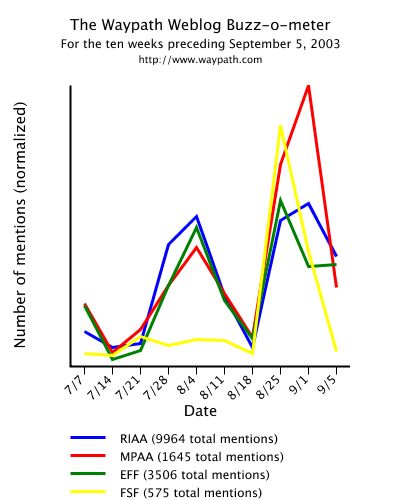Werblog tells the RIAA to Get Real: Kevin feels that suing users « is legally more defensible than suing Napster and its ilk » but he’s concerned that the outrage over those lawsuits brings about the risk of « cheapening the distinction between free beer and free speech ». I like his conclusion:
We need to get as quickly as possible into « Plan B, » which is to offer customers licensed music downloads with prices and terms they find acceptable. And the best way to get there is to acknowledge that the problem isn’t the institution of copyright, or the idea of charging for a piece of recorded music. It’s to empower those within the music industry who realize that scaring 12-year-olds isn’t a long-term solution to all their problems.
I would add that this a great first step which we must not be satisfied with. I think this « Plan B » is purely a business decision, a change in a business model, that can happen in the existing legal context. One could assume a market economy would adjust to meet demand in a mutually profitable point. The music industry being rather concentrated, this process might not happen gracefully. The scorched earth tactics employed by the music industry regarding P2P is a good demonstration: we don’t want to move into that space, but we’ll make sure no one can, either.
Beyond the current issues with the distribution of files are underlying legal issues that need to be adjusted to provide a healthy environment not only for the majors to distribute their stuff, but also for other entities or individuals to create, use, learn from or muck around with, works.
Kevin also links, disapprovingly, to Amateur Hour who stresses that the property in intellectual works is different from property in physical goods. I don’t see how both positions should be mutually exclusive. Yes, the argument of the RIAA and other rights owners regarding far reaching control of works, using DRM or otherwise, is a legal fallacy. This does not mean that P2P sharing on Kazaa can’t also be real classic copyright infringement.
Once these facts are agreed on, we can ask ourselves « should it be this way? » and start thinking about a « Plan C ».


